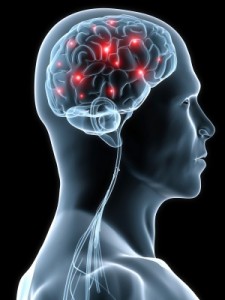Chemo Brain and Brain Training
 Chemo brain or chemo fog refers to the cognitive changes that can occur during and after chemotherapy. These changes may translate into memory lapses, motor problems, difficulty finding words and problems managing multiple tasks and learning new things. Although the causes of the phenomenon are still under debate, it is nonetheless a real problem, affecting 20% to 30% of breast cancer patients who undergo chemotherapy. This New York Time article reports that chemo brain effects may be longer lasting than originally thought.
Chemo brain or chemo fog refers to the cognitive changes that can occur during and after chemotherapy. These changes may translate into memory lapses, motor problems, difficulty finding words and problems managing multiple tasks and learning new things. Although the causes of the phenomenon are still under debate, it is nonetheless a real problem, affecting 20% to 30% of breast cancer patients who undergo chemotherapy. This New York Time article reports that chemo brain effects may be longer lasting than originally thought.
“Chemo brain,” the foggy thinking and forgetfulness that cancer patients often complain about after treatment, may last for five years or more for a sizable percentage of patients, new research shows.
The study, published in The Journal of Clinical Oncology, is a vindication of sorts for many cancer patients, whose complaints about thinking and memory problems are often dismissed by doctors who lay blame for the symptoms on normal aging or the fatigue of illness.
What is offered to these patients to recover their brain functions faster?
Many of the cognitive deficits were relatively mild and easily addressed with coping skills like note taking or strategies to improve focus.
“We all lose memory with time and learn to compensate,” Dr. Syrjala said. “These patients just have to recognize that their brains are perhaps not as finely tuned as they were before they were diagnosed with their cancers, but they can compensate very effectively.”
One wonders whether any of the cognitive training programs available would benefit cancer patients. In 2008, Posit Science did conduct a promising preliminary study but randomized controlled trials are still to come…
Related post: Chemo Brain: cognitive effects of chemotherapy


